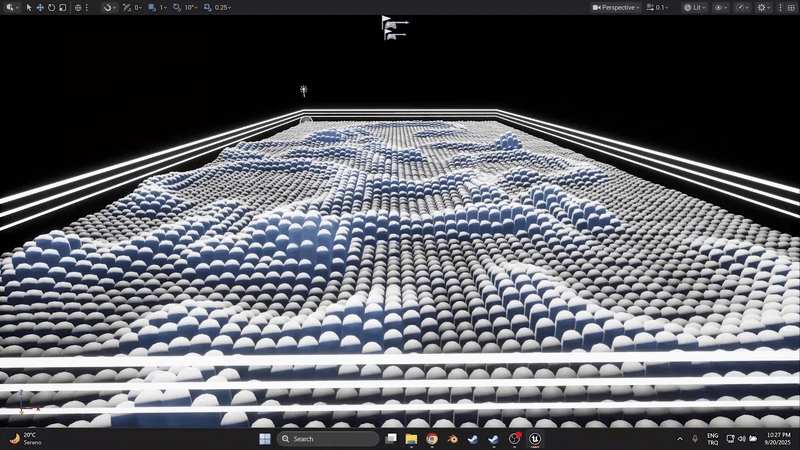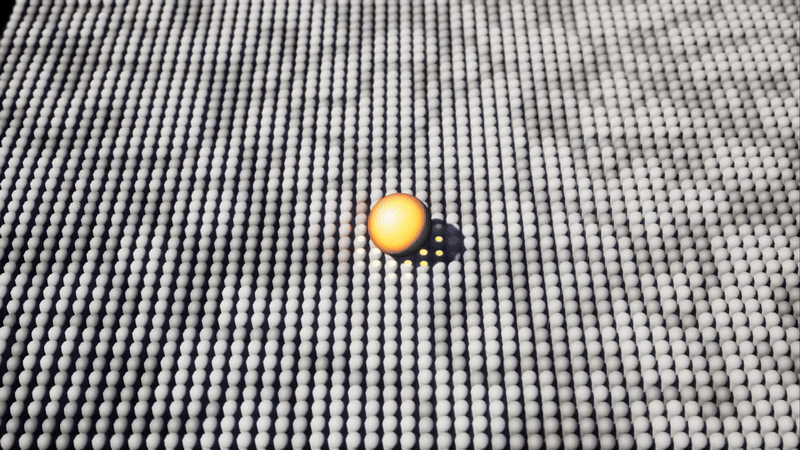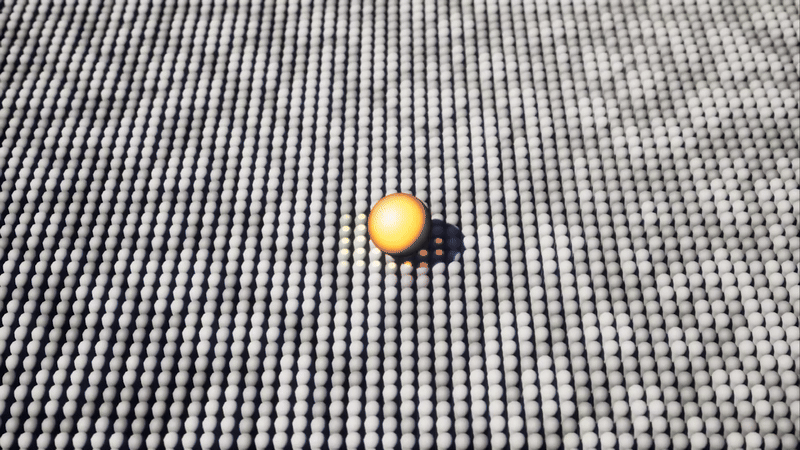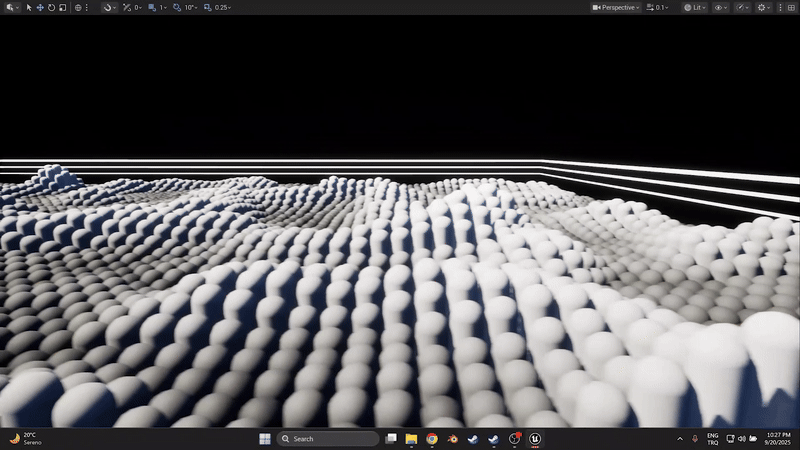What is ?

Griidy is a physics game where the terrain is the controller. On a large modular grid you raise and lower tiles in real time; the sphere moves only as a consequence of what you sculpt.
You compose ramps, banks, and channels that turn simple pulses into precise motion. Solo or split-screen, mastery comes from shaping gradients, not steering a pawn.
Indirect Control
You don’t drive the pawn—you shape the world. Your inputs deform the terrain; physics does the rest, turning landscape design into moment-to-moment play.
Emergent Physics
Tiny slope changes produce readable, satisfying outcomes: S-curves, catch berms, controlled drops, speed kills. Failure→adjust→success loops come from honest physics, not scripts.
Fully Dynamic Field
Every tile is live and stateful. Persistent, tile-by-tile deformation lets you carve routes, manage momentum, and stitch together repeatable solutions on a canvas that never stands still.
Community-First
Griidy is meant to be learned from. We’ll publish a free sample game project and a detailed tutorial series that explain the full stack and the level-authoring flow, so UE developers can adopt it, extend it, and share improvements.
How other games use physics based control?
Before collision

After collision

How use physics based indirect control?


Platform is made of rectangular grid units
User interacts with the surface
and can manipulate the grid





Which will lead the movement of the targetted object
Types of Challenges

Time based tasks
Players will be asked to complete some tasks in a spesific time.
Example
Activate the black dots before time is up. First one who completes will win!
Community-First
Griidy is community-first by design. The idea only matters if others can use it—so we’re sharing the terrain-as-controller stack in a way real teams can adopt. The core ships under MIT, the sample game on Fab opens and runs on day one, and an ad-free tutorial series explains not just how it works, but why choices were made (HISM batching, WPO deformation, and RT blending + collider pooling).
Blueprints stay readable, a tiny optional C++ helper handles the heavy bits, and parameter guides turn “cool demo” into “shippable feature.” With docs and
Discord support, students, hobbyists, and studios can learn it quickly, bend it to their needs, and push the idea further.
Open-Source Sample
The core terrain-control stack is released under MIT. It’s yours to use, ship, and modify in commercial or non-commercial projects—no plugin lock-in, no hidden dependencies.
Ad-Free Tutorial Series
A detailed, ad-free series walks through both the system and the sample—setup, core ideas, integration, and extensions—with downloadable project states per episode.
Free Fab Asset
We publish a clean sample game project on Fab with maps, materials, and comments. Open it in UE5, hit Play, and inspect a working slice instead of isolated snippets.
Docs & Discord
Readable docs, diagrams, and parameter guides (grid sizes, collider-pool ranges, material controls), plus an active Discord for Q&A, feedback, and sharing experiments and improvements.
Our Team

A.Furkan Balcı
Co-Founder
Furkan blends his background in architecture with real-time 3D technologies to design interactive systems at the intersection of physics, gameplay, and spatial design. As the technical mind behind Griidy, he builds complex gameplay mechanics, camera systems, and interaction layers in Unreal Engine. His focus on emergent gameplay, system design, and XR research shapes Griidy into both a playable experience and a learning platform.

B.Yeliz Karaoğlu Balcı
Co-Founder
Yeliz brings a systems-thinking approach to interactive design, combining her expertise in UX and product-service systems to shape meaningful player experiences. At Griidy, she leads design research, user flows, and interaction logic while making the project accessible through clear documentation and tutorials. Her work ensures that Griidy stays user-centered, educational, and inclusive for developers at all levels.


